- Home
- Wilkie Collins
I Say No Page 59
I Say No Read online
Page 59
CHAPTER LV. MIRABEL SEES HIS WAY.
Reaching the hotel at which he was accustomed to stay when he was inLondon, Mirabel locked the door of his room. He looked at the houses onthe opposite side of the street. His mind was in such a state of morbiddistrust that he lowered the blind over the window. In solitude andobscurity, the miserable wretch sat down in a corner, and covered hisface with his hands, and tried to realize what had happened to him.
Nothing had been said at the fatal interview with Emily, which couldhave given him the slightest warning of what was to come. Her father'sname--absolutely unknown to him when he fled from the inn--had only beencommunicated to the public by the newspaper reports of the adjournedinquest. At the time when those reports appeared, he was in hiding,under circumstances which prevented him from seeing a newspaper. Whilethe murder was still a subject of conversation, he was in France--farout of the track of English travelers--and he remained on the continentuntil the summer of eighteen hundred and eighty-one. No exercise ofdiscretion, on his part, could have extricated him from the terribleposition in which he was now placed. He stood pledged to Emily todiscover the man suspected of the murder of her father; and that manwas--himself!
What refuge was left open to him?
If he took to flight, his sudden disappearance would be a suspiciouscircumstance in itself, and would therefore provoke inquiries whichmight lead to serious results. Supposing that he overlooked the riskthus presented, would he be capable of enduring a separation fromEmily, which might be a separation for life? Even in the first horrorof discovering his situation, her influence remained unshaken--theanimating spirit of the one manly capacity for resistance which raisedhim above the reach of his own fears. The only prospect before him whichhe felt himself to be incapable of contemplating, was the prospect ofleaving Emily.
Having arrived at this conclusion, his fears urged him to think ofproviding for his own safety.
The first precaution to adopt was to separate Emily from friends whoseadvice might be hostile to his interests--perhaps even subversive of hissecurity. To effect this design, he had need of an ally whom he couldtrust. That ally was at his disposal, far away in the north.
At the time when Francine's jealousy began to interfere with allfreedom of intercourse between Emily and himself at Monksmoor, he hadcontemplated making arrangements which might enable them to meet at thehouse of his invalid sister, Mrs. Delvin. He had spoken of her, and ofthe bodily affliction which confined her to her room, in terms whichhad already interested Emily. In the present emergency, he decided onreturning to the subject, and on hastening the meeting between the twowomen which he had first suggested at Mr. Wyvil's country seat.
No time was to be lost in carrying out this intention. He wrote to Mrs.Delvin by that day's post; confiding to her, in the first place, thecritical position in which he now found himself. This done, he proceededas follows:
"To your sound judgment, dearest Agatha, it may appear that I am makingmyself needlessly uneasy about the future. Two persons only know that Iam the man who escaped from the inn at Zeeland. You are one of them, andMiss Jethro is the other. On you I can absolutely rely; and, after myexperience of her, I ought to feel sure of Miss Jethro. I admit this;but I cannot get over my distrust of Emily's friends. I fear the cunningold doctor; I doubt Mr. Wyvil; I hate Alban Morris.
"Do me a favor, my dear. Invite Emily to be your guest, and so separateher from these friends. The old servant who attends on her will beincluded in the invitation, of course. Mrs. Ellmother is, as I believe,devoted to the interests of Mr. Alban Morris: she will be well outof the way of doing mischief, while we have her safe in your northernsolitude.
"There is no fear that Emily will refuse your invitation.
"In the first place, she is already interested in you. In the secondplace, I shall consider the small proprieties of social life; and,instead of traveling with her to your house, I shall follow by a latertrain. In the third place, I am now the chosen adviser in whom shetrusts; and what I tell her to do, she will do. It pains me, reallyand truly pains me, to be compelled to deceive her--but the otheralternative is to reveal myself as the wretch of whom she is in search.Was there ever such a situation? And, oh, Agatha, I am so fond of her!If I fail to persuade her to be my wife, I don't care what becomesof me. I used to think disgrace, and death on the scaffold, the mostfrightful prospect that a man can contemplate. In my present frame ofmind, a life without Emily may just as well end in that way as in anyother. When we are together in your old sea-beaten tower, do your best,my dear, to incline the heart of this sweet girl toward me. If sheremains in London, how do I know that Mr. Morris may not recover theplace he has lost in her good opinion? The bare idea of it turns mecold.
"There is one more point on which I must touch, before I can finish myletter.
"When you last wrote, you told me that Sir Jervis Redwood was notexpected to live much longer, and that the establishment would be brokenup after his death. Can you find out for me what will become, under thecircumstances, of Mr. and Mrs. Rook? So far as I am concerned, I don'tdoubt that the alteration in my personal appearance, which has protectedme for years past, may be trusted to preserve me from recognition bythese two people. But it is of the utmost importance, remembering theproject to which Emily has devoted herself, that she should not meetwith Mrs. Rook. They have been already in correspondence; and Mrs. Rookhas expressed an intention (if the opportunity offers itself) of callingat the cottage. Another reason, and a pressing reason, for removingEmily from London! We can easily keep the Rooks out of _your_ house;but I own I should feel more at my ease, if I heard that they had leftNorthumberland."
With that confession, Mrs. Delvin's brother closed his letter.

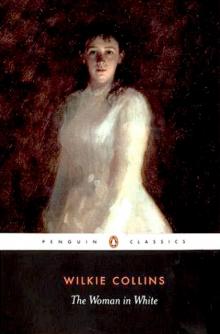 The Woman in White
The Woman in White The Queen of Hearts
The Queen of Hearts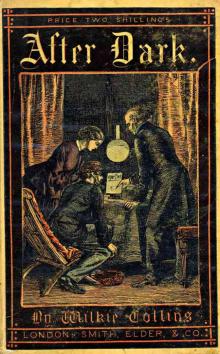 Miss Jeromette and the Clergyman
Miss Jeromette and the Clergyman Man and Wife
Man and Wife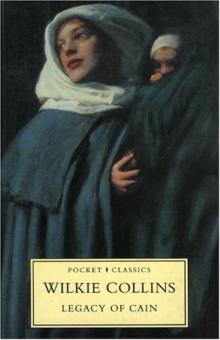 The Legacy of Cain
The Legacy of Cain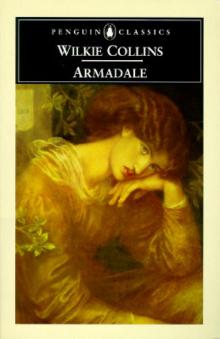 Armadale
Armadale The Frozen Deep
The Frozen Deep John Jago's Ghost or the Dead Alive
John Jago's Ghost or the Dead Alive Poor Miss Finch
Poor Miss Finch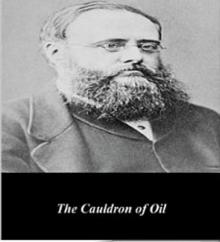 The Cauldron of Oil: A Case Worth Looking At
The Cauldron of Oil: A Case Worth Looking At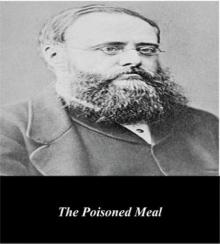 The Poisoned Meal
The Poisoned Meal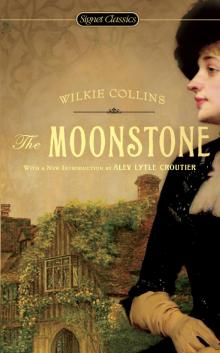 The Moonstone
The Moonstone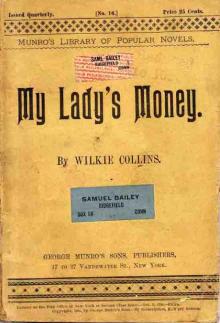 My Lady's Money
My Lady's Money Classic Ghost Stories
Classic Ghost Stories Jezebel's Daughter
Jezebel's Daughter The Devil's Spectacles
The Devil's Spectacles I Say No
I Say No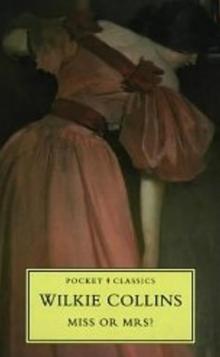 Miss or Mrs.?
Miss or Mrs.? Nine O'Clock
Nine O'Clock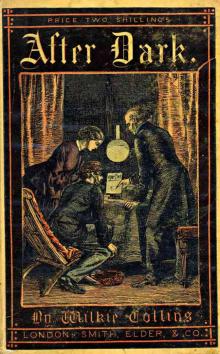 The Lawyer's Story of a Stolen Letter
The Lawyer's Story of a Stolen Letter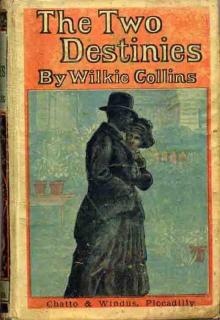 The Two Destinies
The Two Destinies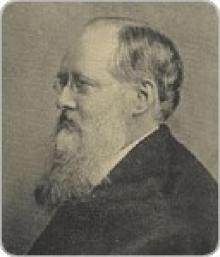 Mr. Percy and the Prophet
Mr. Percy and the Prophet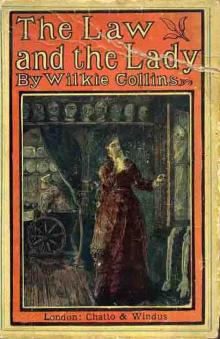 The Law and the Lady
The Law and the Lady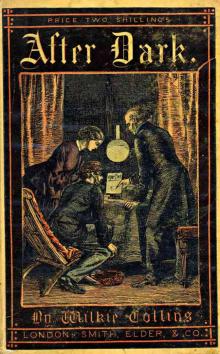 The Nun's Story of Gabriel's Marriage
The Nun's Story of Gabriel's Marriage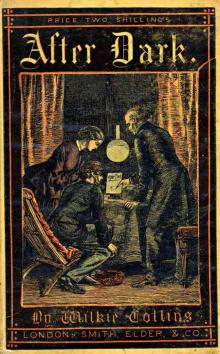 After Dark
After Dark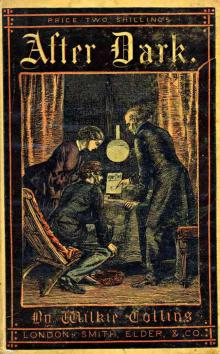 Mr. Captain and the Nymph
Mr. Captain and the Nymph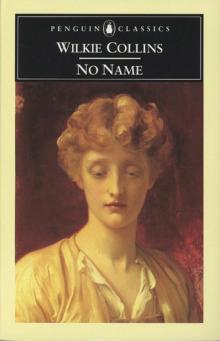 No Name
No Name The Moonstone (Penguin Classics)
The Moonstone (Penguin Classics) Antonina
Antonina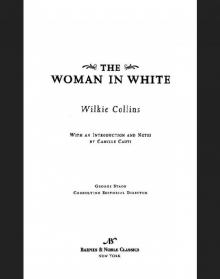 Woman in White (Barnes & Noble Classics Series)
Woman in White (Barnes & Noble Classics Series)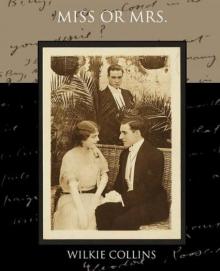 Miss or Mrs
Miss or Mrs The Dead Alive
The Dead Alive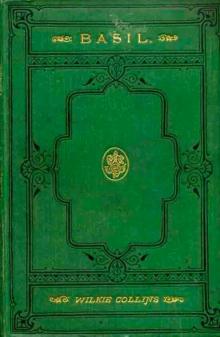 Basil
Basil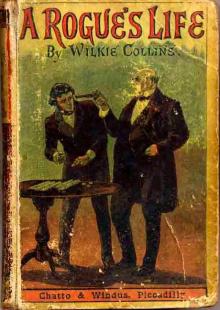 A Rogue's Life
A Rogue's Life The New Magdalen
The New Magdalen Blind Love
Blind Love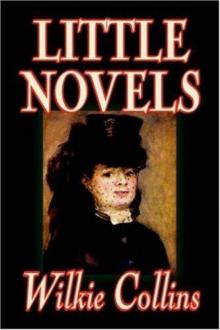 Little Novels
Little Novels The Lazy Tour of Two Idle Apprentices
The Lazy Tour of Two Idle Apprentices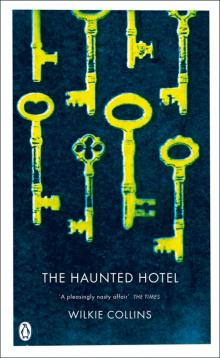 The Haunted Hotel
The Haunted Hotel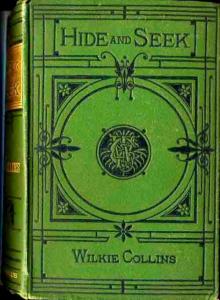 Hide and Seek
Hide and Seek